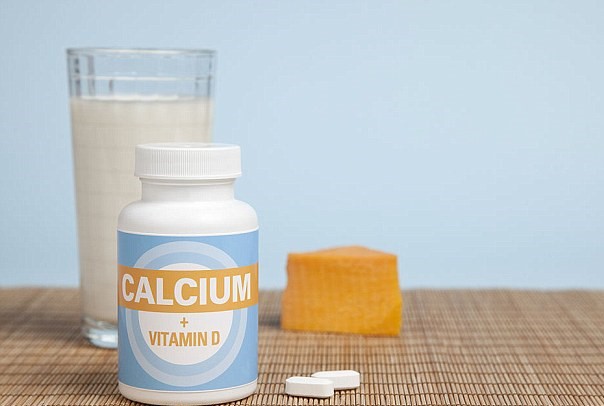
We all know that calcium is important in building strong bones, but Vitamin D plays a crucial role in bone health too! Read on to learn how calcium and vitamin D help to prevent osteoporosis, as well as what you can do to live a bone-healthy lifestyle.
What is osteoporosis and what causes it?
Osteoporosis is a bone condition where the bones are brittle, have low bone density and decreased bone strength. This occurs when there is an imbalance between new bone formation and old bone resorption (losing bone mass). Osteoporosis causes bones to become weaker and thinner, putting patients at higher risk of fracture, especially in the hip, spine, and wrist.
Why is Vitamin D important for bone health? Is Vitamin D or Calcium more important?
Vitamin D is essential in for proper bone health as it helps the absorption of calcium which builds stronger bones. Calcium is the main building block of bone, and maintains bone strength and density, but it would not be able to do so without enough vitamin D.
Both Vitamin D and calcium are important as they work together to help maintain your bones. Having sufficient calcium would go to waste if you do not have sufficient Vitamin D, and vice versa.
How can you get enough calcium and vitamin D?
Most people can take in enough calcium from the foods that they eat.
Good calcium sources include:
- Dairy products – milk, yogurt, cheese
- Leafy, green vegetables – spinach, kale
- Tofu, tempeh
Vitamin D is produced by the body when exposed to sunlight. Thus, getting sufficient sun will help your body increase levels of vitamin D. However, it is important to take the necessary precautions when out in the sun, use proper sun protection and do not stay out in the sun for too long.
For those of us who may live a lifestyle where you do not get much sun, you can eat more vitamin D-rich food such as fatty fish (tuna, salmon) and egg yolks.
If your intake of calcium and vitamin D is low, your doctor may suggest taking dietary supplements to help increase your levels. Discuss this option with your doctor for their recommendations before taking any supplements.
What else can you do to prevent osteoporosis?
Other than eating an appropriate diet, weight-bearing and resistance exercises are also a good way to ensure you build and maintain bone density.
Weight-bearing exercises help to strengthen bones by putting weight on them. These exercises are usually done on your feet, so your bones and muscles work against gravity to keep you upright.
Examples: brisk walking, skipping, hiking, aerobics, tai chi, dancing
Resistance exercises help to build muscle strength by working them against a weight or force. This helps to maintain muscle strength, coordination and balance which can in turn reduce the risk of falls and related fractures.
Examples: push-ups, bodyweight squats, lifting weights.




